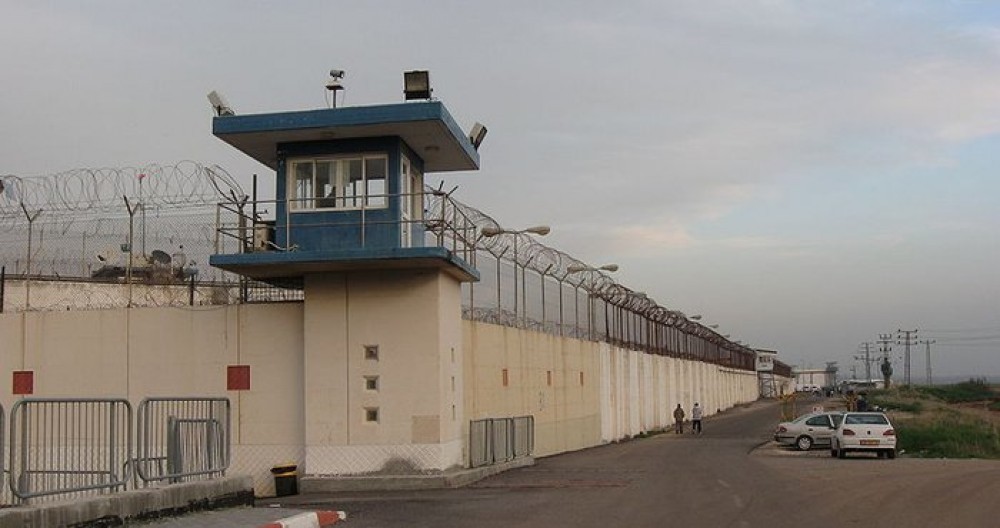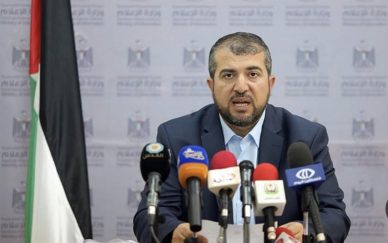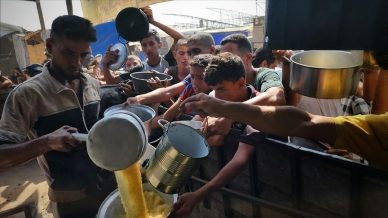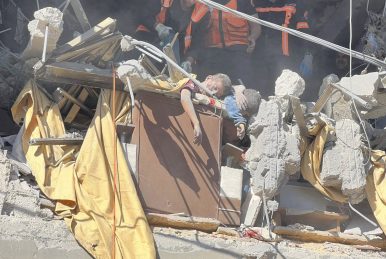GAZA, (PIC)
The Israeli Negev Prison has become a new arena for the Israeli occupier’s brutality in dealing with Palestinian detainees.
Ketziot or the Negev Desert Prison is an Israeli detention facility located 45 kilometers southwest of Beersheba. During the first intifada, the prison was the largest detention facility operated by Israel, housing three-quarters of all Palestinian detainees.
After months of the Israeli war of extermination on the Gaza Strip, the prison has become a destination for receiving detainees from the Gaza Strip and subjecting them to brutal torture.
Torture leading to death
The Al-Mezan Center for Human Rights stated in a Saturday statement that as the Israeli occupation authorities continue to use horrific methods of torture leading to death, which has claimed the lives of dozens of detainees, they have transformed the detention centers into another arena for acts of revenge and brutal retaliation against Palestinian detainees.
It indicated that the occupation authorities have taken inhumane measures, constituting excessively cruel and continuous punishments, and serious and systematic violations of the legal and moral standards established by the civilized world to regulate the conditions of persons deprived of their liberty in detention facilities, which guarantee their dignity and the full rights granted to them under international humanitarian law and human rights law.
Spread of skin diseases
According to the statement, on August 19, 2024, an Al-Mezan Center lawyer visited the Negev Prison, where he observed skin rashes on the bodies of the detainees he met, and they informed him of the spread of skin diseases among them, which had affected about 150 detainees.
The center affirmed that the prison administration refuses to provide appropriate treatment for the detainees and claims that their diseases are incurable.
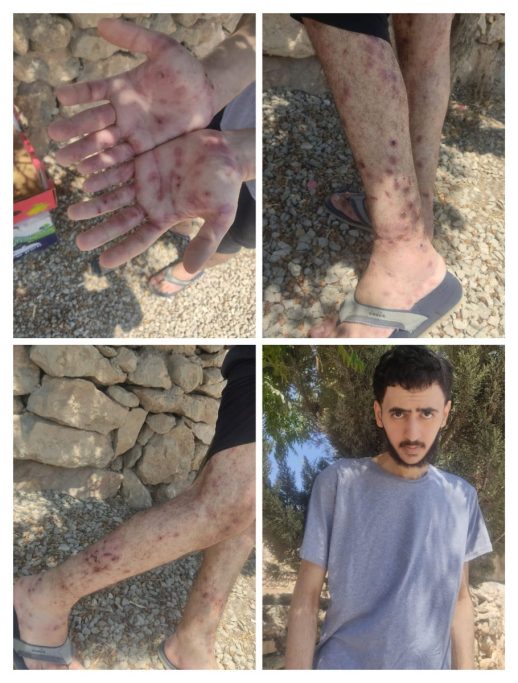
Spread of insects and worms
The detainees indicated the spread of insects and worms in the toilets, the entry of sewage water into the tents in which they are detained, and the appearance of algae on the ground, in addition to the lack of personal hygiene supplies and hot water, creating a conducive environment for diseases and epidemics.
Deprivation of bathing
The absence of any treatment and the continued deprivation of detainees from bath water and personal hygiene supplies contribute to the spread of serious diseases among the detainees and threaten their lives, according to the statement.
The Al-Mezan Center lawyer noted during his inspection of the detainees he met in Negev Prison that they were suffering from severe weakness and emaciation, indicating poor health.
Decrease in weights
The detainees reported a significant and noticeable decrease in their weights since their arrest, due to their deprivation of adequate and healthy meals, as they are provided with poor and insufficient meals that do not satisfy their hunger and do not contain the necessary proteins and vitamins required by the body. This weakens the immune system and makes them more susceptible to diseases.
Overcrowding and congestion
The detainees complained about the existing congestion, as there are (30) detainees and only (11) beds in each tent, forcing them to sleep on the ground. The tents themselves are torn and dilapidated, and do not protect them from heat or cold.
Estimates by one of the detainees visited by the Center’s lawyer indicate that the number of detainees in the Negev prison is around (600), while estimates suggest the number may reach (900).
The detainees reported that the occupation authorities allow them to shower for no more than 3 minutes with cold water once a week, without providing the necessary cleaning materials and supplies.
The mattresses they sleep on are unclean and unsuitable, and cats fill the place and contribute to the spread of diseases. In addition, the prison administration takes away the mattresses at 6:00 AM every morning and returns them in the evening hours.
The detainees also stated that the plastic drinking water bottles have not been replaced for about (4) months.
The detainees added that they are deprived of family visits or lawyer visits, in addition to being detained under the unlawful combatant law, which deprives them of the most basic guarantees of the right to a fair trial, as they are not informed of the charges against them, and their right to defense and discussion of the evidence of accusation is confiscated, and consequently the presumption of innocence is absent.
Number of Gaza detainees
The occupation authorities have incarcerated thousands of Palestinians from the Gaza Strip in their prisons since October 7th, 2023, and have released some of them through the Kerem Shalom crossing and other areas along the separation fence.
According to the Al-Mezan Center, the remaining detainees currently number around 2,650, including 12 children and two women. Of the total number of detainees, around 300 are undergoing trials, while 2,350 of them are being held as unlawful combatants.
The law on unlawful combatants allows for the detention of detainees without informing them of the charges against them or the duration of their detention, depriving them of any defense guarantees.
The Al-Mezan Center also indicates that all detainees in the initial months of their detention faced orders prohibiting them from meeting with a lawyer. 70 detainees are still barred from lawyer visits.
The Palestinian detainees from the Gaza Strip are being held in the following Israeli prisons and detention centers: Nafha Prison, Askalan Prison, Ofer Prison, Ofer Camp, Dekel Prison, Sde Teiman Camp, Hasharon Prison, and the Petah Tikva Interrogation Center.
The Al-Mezan Center holds the occupying authorities fully responsible for the lives of the Palestinian detainees in Israeli prisons, and sees these practices as a new pattern of brutal Israeli practices against Palestinian detainees in Israeli prisons, which threaten their lives due to the spread of diseases among them and the severe and ongoing suffering they cause.
The Al-Mezan Center called on the international community to fulfill its legal and moral responsibilities towards the occupied Palestinian territories and called on the International Criminal Court to issue immediate arrest warrants against those who ordered and carried out the serious crimes committed against the Palestinian people, especially the detainees.
The Center warns against the continuation of the current situation, which leads to the exacerbation of the suffering of Palestinian detainees in Israeli prisons and leads to their deaths, which requires the international community to stop the silence and fulfill its legal and moral obligations and activate the recommendations made by the International Court of Justice in its advisory opinion dated July 19 of this year.

